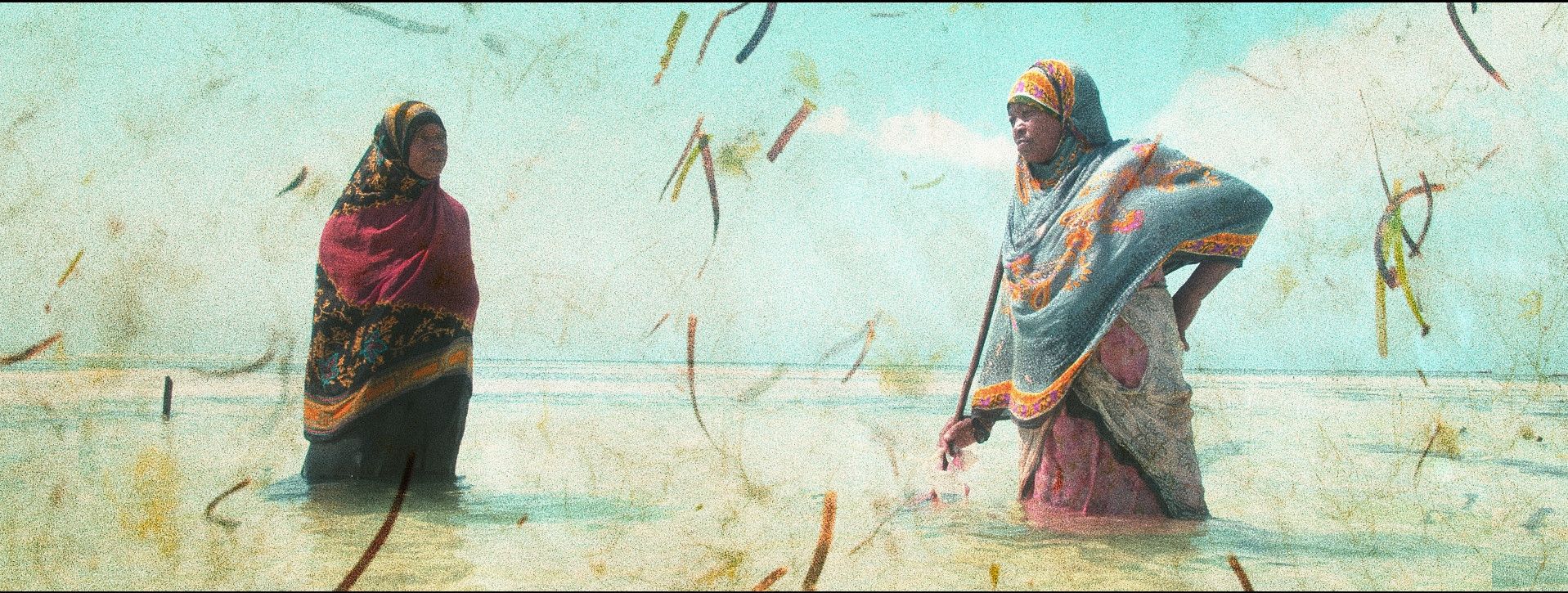Works
Bahari (2025)
In this film, Lois Patiño turns his gaze to the natural and human environment of Zanzibar, where he portrays the daily life of the women who cultivate seaweed on these beaches, along with the presence of marine species such as hermit crabs. The work establishes a dialogue between human and non-human from a post-humanist perspective, and invites us to imagine a coexistence between species where all forms of life are equally important. The film moves away from the anthropocentric gaze to propose a shared cosmology, in which hermit crabs, seaweed and the women who work on Zanzibar’s beaches coexist on the same level. Through a sensory aesthetic, in which women's voices merge with the soundscape of the sea, the film suggests an animistic vision of the environment as a living, spiritual and shared space. Thus, Lois Patiño creates an experience that expands our perception of the world, where work, nature and memory intertwine in a reflection on interconnection, post-humanist thought and inter-species theories.



